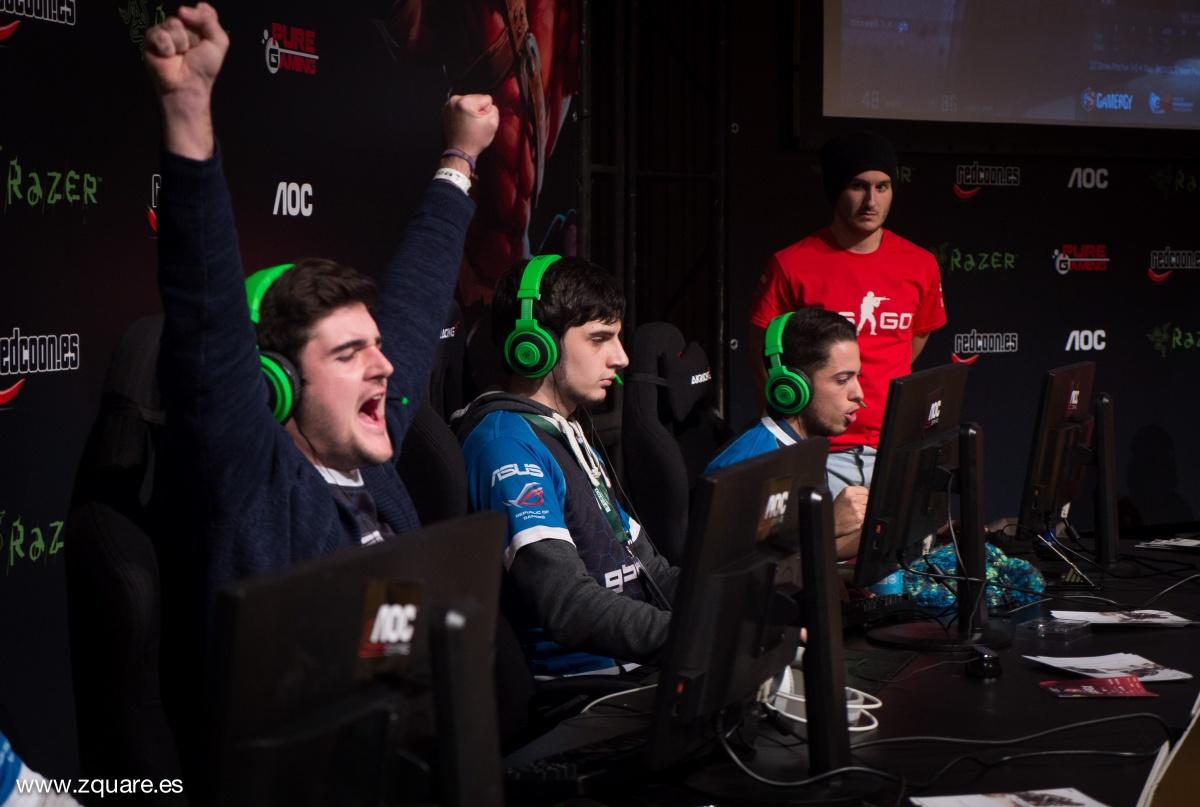College Video Gaming Has No Place In Athletic Departments
December 4, 2015
The rise of competitive video gaming, often called e-sports, is happening in universities across the country. While e-sports are entertaining, they do not belong in university athletic departments. Gamers who participate in e-sports tournaments are not competing in an athletic competition, but rather a mental one. So why are sports departments taking on e-sports when the purpose of university-sanctioned athletics is physical competition?
At many universities including Robert Morris University Illinois, University of California Berkeley and University of Cincinnati, e-sports are a part of the university’s athletic department. According to a New York Times article entitled “E-Sports at College, With Stars and Scholarships” by Nick Wingfield, gamers receive the same benefits that student athletes do, and at Robert Morris University in Illinois 35 students are currently receiving athletic scholarships for e-sports. The gamer-athletes receive up to half their tuition, room and board from the university.
Anthony Farrell, Fordham College at Lincoln Center (FCLC) ’19, responded to this by saying, “I feel like that is absurd, because the gamers are getting a scholarship for a hobby.” Gamers do not contribute to the university that other players, like football or basketball players, might. The input doesn’t equal the output as the university is basically paying half of their education for nothing in return. For example, college football and basketball generate money and continued alumni donations for universities, while e-sports do not bring in similar revenue.
In addition to giving gamers athletic scholarships, the athletic department at Robert Morris University Illinois also provides a practice space “decked out with jet-black walls, mood lighting and leather gamer chairs with red piping.” Though it is not specified how much the space cost to build, it still begs the question of whether the money spent on the room could’ve been used to improve facilities for the athletes that play in widely known and popular sports.
The most popular game that is played among college gamers is League of Legends. Gamers form teams which have the potential to go on to represent each university at nationwide tournaments.
E-sports belong in a department more closely affiliated with mental skills and technology. Competitive video games, like athletic sports, require particular skills concerning strategy and mental sharpness, as well as requisite knowledge of the technology the players are working. However, the skills needed for athletic competitions extend even further. For example, a basketball player has to have a set of athletic skills, including agility, endurance, strength and coordination, in order to compete successfully. Athletic departments are able to provide resources, rules and regulations and experiences that benefit the athlete. Those things, if applied to e-sports, can actually hurt the industry of competitive video gaming.
When athletic departments take on e-sports, the members of the competitive video gaming teams are required to follow the rules and regulations of the university athletic department. A potential major setback for gamers is the practice-time restriction. The average professional gamer plays video games a minimum of 50 hours per week. If they become a part of athletic departments, they will not be allotted this much time to practice. Athletic departments would be wasting money providing resources that would actually hurt the gamers.
Some gamers have been known to drop out of school to pursue a career as a professional video gamer. According to the New York Times, Conan Liu, a University of California Berkeley student and member of the school’s e-sports team, left Berkeley for a year to play StarCraft II professionally. When he did not compete as well as he expected, he returned to Berkeley, but is now a year behind in his studies. Gamers of winning athletic programs are likely to follow Liu’s footsteps. Once the players see any successes, they will want to pursue it at the next level. In the professional video game world, it is extremely unlikely that a player will achieve success and be able to live off of the salary he will make, so gamers will most likely lose an entire year’s worth of time without any payoff.
At the end of the day, competitive video gaming is not a physical competition. Athletic departments are equipped to satisfy the needs of physical athletes, not gamers, who require more mental and technical resources. Gamers will be hurt by the rules and regulations of athletic departments and will not be given the proper resources needed to succeed. Ultimately, athletic departments and competitive video gaming are not a good fit for each other.










